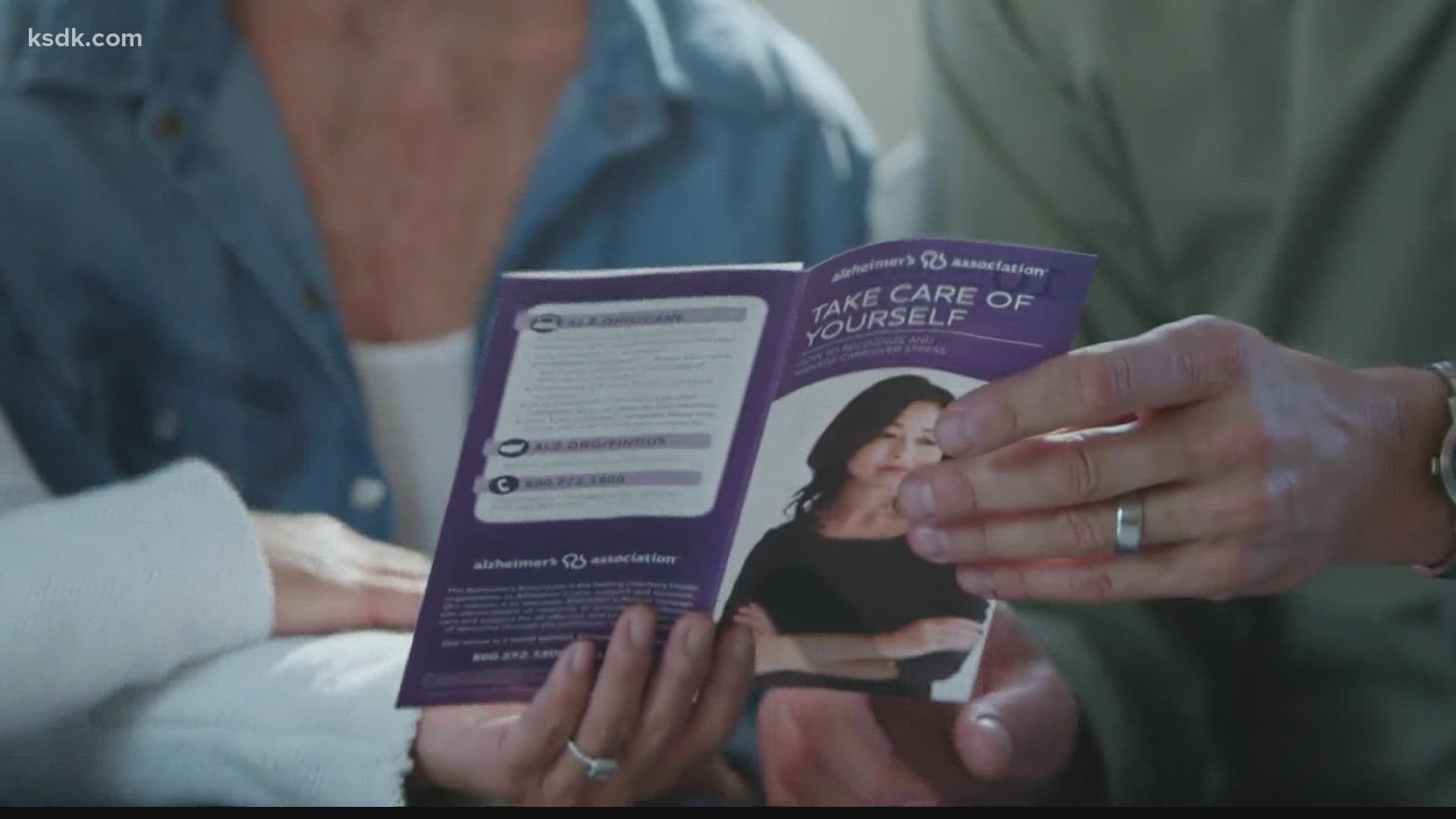ST. LOUIS — Theon Phillips found himself navigating an unexpected situation when older sister Adrianne Phillips, 61, was diagnosed with Alzheimer's, especially because "growing up, you would have figured it would have been the other way around... she would be taking care of me. "
Phillips brought his sister — who he calls "fiercely independent" — from her house outside Detroit to his home in Belleville, but soon he needed help.
"When you're talking about bringing somebody into your home it really has to be somebody that you trust," he said.
He said Adrianne was initially able to feed herself and be left alone but now requires more help. When he needed help to make that happen, he reached out to the Alzheimer's Association, a group that now estimates there is a shortage of memory care workers with the problem only expected to worsen.
"It's not surprising in the slightest," Alzheimer's Association Care Consultation Manager Harrison Sand said, "We've heard from families for months about the difficulty in finding home care aide."
An annual report released Monday included information that showed "55% of primary care physicians caring for people living with Alzheimer’s report there are not enough dementia care specialists in their communities to meet patient demands."
"We need a 30% increase in-home care aid workers by 2050," Sand said, adding, "but, honestly, the numbers are going down not up."
Advocates say the industry would benefit from federal changes like a rise in the minimum wage since most of these jobs pay $13-16 an hour. The Biden-Harris administration has also proposed national nursing home reform.
"We really hope this can help us," VOYCE Program Director Chien Hung said. "The last federal reform... it was 1987. So it's a few years ago."
As the Phillips look at their own future while trying to spread awareness for others too, Theon says there is room for optimism.
"We're gonna have continued hurdles to try to overcome. But I'm going to be honest with you, I do have confidence that we're going to be OK," he said.
The Alzheimer's Association Helpline (1-800-272-3900) operates 24 hours a day, seven days a week, offering more than 200 languages.

